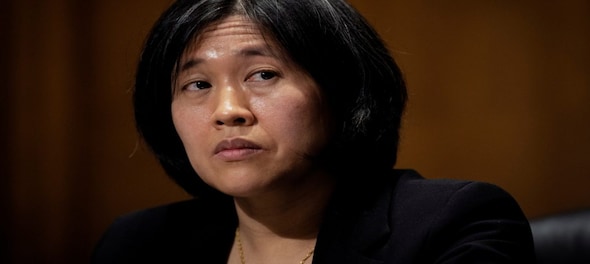
US Trade Representative (USTR) Katherine Tai on Friday initiated the process for retaliatory action under Section 301 against India and five other countries —Austria, Britain, Italy, Spain, and Turkey.
Tai said she was maintaining the threat of US tariffs on goods from these six countries in retaliation for their digital services taxes (DSTs).
In January 2021, the USTR found that the DSTs adopted by these countries were subject to action under Section 301 of the US Trade Act, as they discriminated against US digital companies.
What are digital service taxes?
Digital Service Taxes (DSTs) are aimed at ensuring that non-resident, digital service providers pay their fair share of tax on revenues generated in the Indian digital market.
Many governments around the world are of the view that large digital services are making too much money but not paying enough taxes out of their local operations, citing legal arrangements. To address this, there have been various efforts to come up with an international standard for DST.
Why is the US retaliating?
Last year, on June 2, USTR began its probe into DST laws in 10 jurisdictions — Austria, Brazil, the Czech Republic, the European Union, India, Indonesia, Italy, Spain, Turkey, and the United Kingdom. In January 2021, USTR issued reports on DSTs adopted by Austria, India, Italy, Spain, Turkey and the UK.
The USTR report found India’s action and that of five other countries to be discriminatory and said that it negatively affected US commerce. It also observed that India’s DST law explicitly exempted Indian digital companies, while targeting non-Indian firms.
The January USTR 2021 report stated: "India’s DST imposes a 2 percent tax on revenue generated from a broad range of digital services offered in India, including digital platform services, digital content sales, digital sales of a company’s own goods, data-related services, software-as-a-service, and several other categories of digital services. India’s DST explicitly exempts Indian companies — only “non-residents" must pay the tax."
The report further states, "India’s DST is discriminatory on its face. The law explicitly exempts Indian companies, while targeting non-Indian firms. The result is that US "non-resident" providers of digital services are taxed, while Indian providers of the same digital services to the same customers are not. This is discrimination in its clearest form”.
This 2 percent tax is an expansion of the ‘equalisation levy’ that had been in place since 2016.
How is US President Joe Biden’s approach to this different from that of Donald Trump?
The Trump administration’s stance to DST was hostile. Once he even went to the extent of threatening France over its digital tax policy, saying, “I’m not going to let people take advantage of American companies. If anyone is going to take advantage of American companies, it’s going to be us. It's not going to be France."
However, US President Joe Biden’s approach seems to be softer than his predecessor's. His administration seems to be having a positive outlook on digital tax negotiations. Biden has made renewed commitments to pursue a global agreement on DSTs through the Organization for Economic Cooperation and Development (OECD) — a group of 37 nations.
His treasury secretary Janet Yellen had said in January, "I am certainly aware of the concerns US companies have raised about DSTs. While the details of DSTs differ across jurisdictions, many have been designed in a way that unfairly singles out a few large US digital platform companies. I look forward to consulting with the USTR and the Congress on these issues."
Is it a major irritant in Indo-US ties?
The friction over DST may influence Indo-US ties in the future. A report in Mint, quoting Divakar Vijayasarathy, founder and managing partner of DVS Advisors LLP, a professional services firm, stated that consensus on the new global tax rules was to be reached by the end of December 2020.
However, COVID-19 and the US presidential elections forced the OECD to push the deadline till mid-2021. Vijayasarathy warns that if a consensus is not reached by mid-2021, OECD expects a trade war that could wipe out 1 percent of global growth every year.
What is equalisation levy?
Equalisation levy is a non-discriminatory charge to ensure a level-playing field for e-commerce entities having permanent establishments in India. The equalisation levy was originally meant for non-resident tech firms such as social media platforms for hosting online ads targeting Indian consumers.
India maintains that equalisation levy on e-commerce is a fair and non-discriminatory tax aimed at all foreign digital companies functioning in the local market, and is not aimed just at US firms.
First Published: Mar 27, 2021 7:47 PM IST
Check out our in-depth Market Coverage, Business News & get real-time Stock Market Updates on CNBC-TV18. Also, Watch our channels CNBC-TV18, CNBC Awaaz and CNBC Bajar Live on-the-go!


BJP holds meeting in Delhi as polling underway for 5th phase
May 20, 2024 4:21 PM
UP Police arrests man after viral videos shows him voting multiple times
May 20, 2024 2:18 PM

